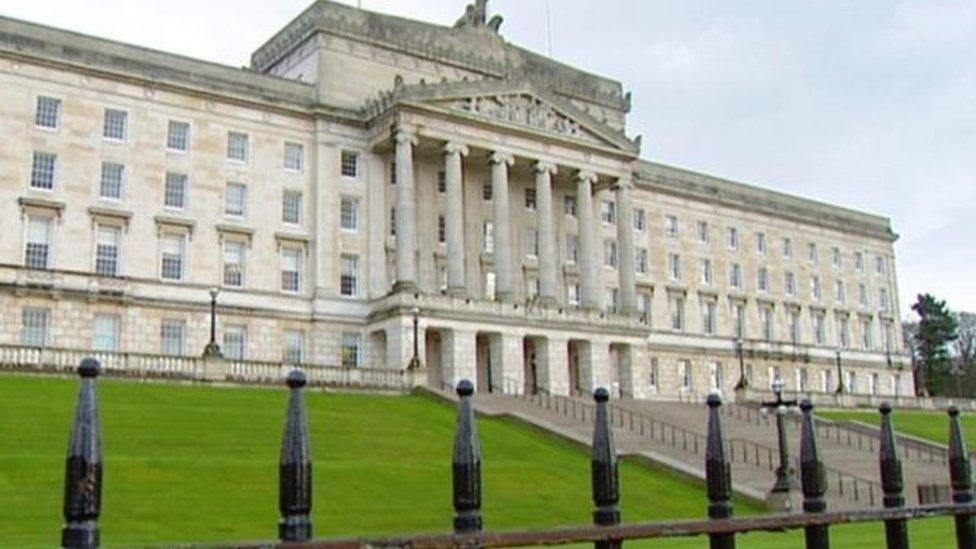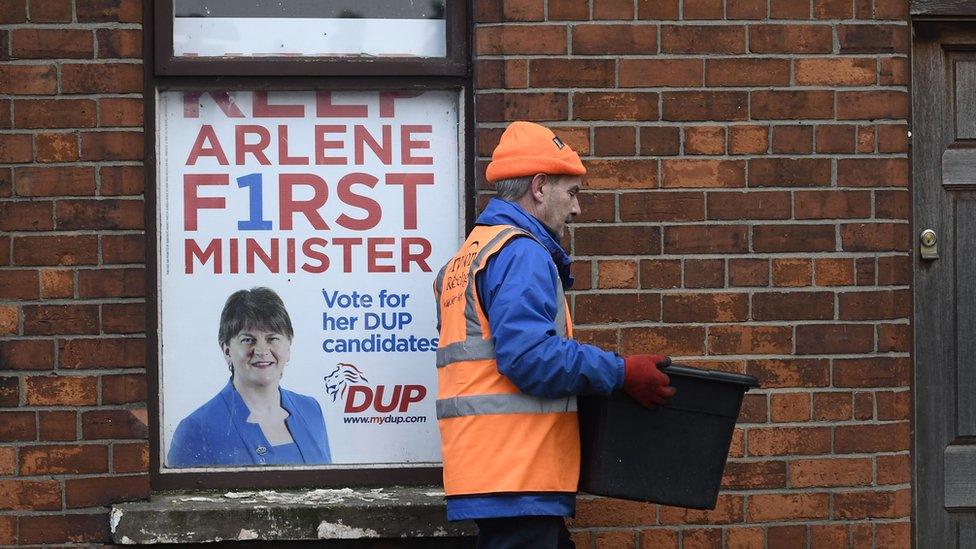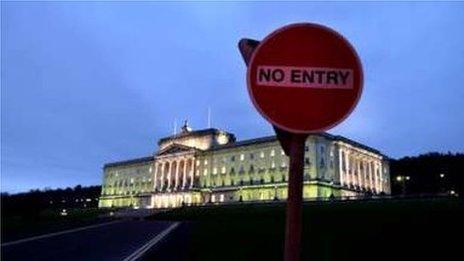Big changes could follow Northern Ireland Assembly election
- Published

The breakdown of the Stormont assembly was not pre-determined.
Although the assembly has wound down with almost clockwork-like inevitability, it should not be forgotten that the breakdown of Stormont wasn't pre-determined.
Despite their differences over Brexit and the legacy of the Troubles, the DUP and Sinn Féin maintained remarkable discipline after first the UUP, then the SDLP decided to leave the executive.
Until mid-December, the two parties' joint approach also extended to the Renewable Heat Incentive (RHI) scandal.
When a BBC Spotlight investigation into the RHI affair stirred widespread public concern, both parties appeared to be making progress behind the scenes in arranging some kind of an investigation. This would have supplemented the Public Accounts Committee which had been taking evidence on the scandal since September.
But after former DUP minister Jonathan Bell broke ranks on a Nolan TV special on 15 December those attempts to manage the crisis within the walls of Stormont Castle broke down.
Then came the disastrous assembly sitting of 19 December, when the DUP decided to override Sinn Féin's concerns, pressing ahead with an Arlene Foster statement against Martin McGuinness's express wishes.
On the day, Sinn Féin's warning of "grave consequences" looked like the party might just be crying wolf. But in reality the die was cast, as republican grassroots anger grew.
The former Northern Ireland Secretary Lord Hain reckons Arlene Foster's handling of the fall-out from the scandal has been a "textbook case of how not to manage a crisis". Certainly the DUP has appeared to be caught napping by the speed with which this affair developed - offering concessions, expressions of regret or offers of inquiries too late to appease its critics.
The heating scandal has ignited the election, but will the battle ahead be a referendum on the RHI scandal as the Stormont opposition wants?
For different reasons, both the DUP and Sinn Féin are keen on widening the battleground.

The DUP is framing the election contest as an attempt to "take Arlene Foster down"
The DUP is framing the contest as an attempt to "take Arlene Foster down" and to push through investigations which would put soldiers and police officers in the dock over controversial Troubles killings.
Sinn Féin say it's all about the DUP's arrogance and the failure of both the DUP and the UK government to deliver on commitments in relation to the former jail at Maze/Long Kesh, the treatment of the Irish language and the logjam over the legacy of the troubles.
Over and above these policy matters, it look likely that any fresh talks on the other side of the election will have to consider potential structural changes at Stormont.
Should the mandatory coalition, whereby all the major parties have a right to be in government, be abandoned in favour of a more conventional voluntary coalition? Should weighted majority voting be introduced?
Should Northern Ireland have two joint first ministers rather than a first and deputy first?
Should there be radical changes to the petition of concern system which has led to frequent cross-community vetoes? In the light of Brexit, are the cross-border institutions created under the Good Friday Agreement in need of reform?
All this looks like the stuff of talks which will last far longer than the three weeks the law allows to form a new executive after the March election.
Whilst the major parties may talk about all this and more, expect their critics to use the campaign ahead to remind voters what brought Stormont down.

We won't know until the votes are counted exactly what impact the negative publicity generated by the heating scandal has had on public opinion and party allegiance
It seems hard to imagine that the DUP and Sinn Féin won't emerge again as the main players. But we won't know until the votes are counted exactly what impact the negative publicity generated by the heating scandal has had on public opinion and party allegiance.
Could a shift in opinion, for example, endanger the DUP's power to veto measures without requiring the assistance of other parties, for which 30 MLAs are required?
That point might be rendered academic if there is no Stormont assembly in which to wield a petition of concern.
Nevertheless the public can have their say in this election, even if it is only to determine the relative weights the parties will be able to throw around in the potentially protracted negotiations coming up.
- Published16 January 2017

- Published16 December 2016